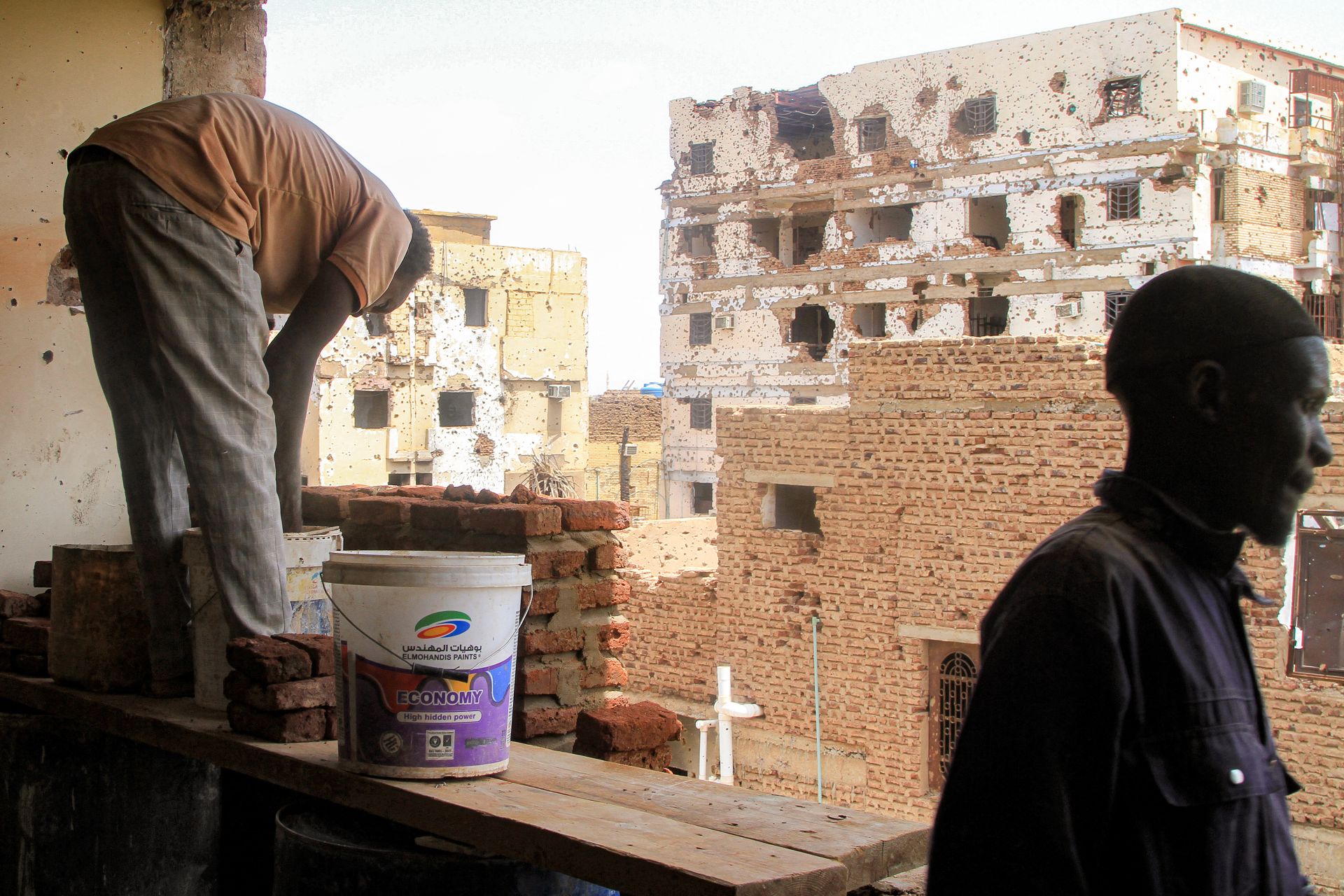- Home
- Middle East
- Sudan Peace Bid Falters as Foreign Players Bicker Over Generals' Role

A US-led push to end Sudan’s devastating conflict failed this week after deep disagreements between Egypt and the UAE on whether the warring generals should be included in peace talks. With millions displaced and fighting escalating ahead of the rainy season, the breakdown underscores the challenges of securing regional consensus. ©EBRAHIM HAMID / AFP
The latest US attempt to chart a way out of the devastating conflict in Sudan broke down this week amid deadlock over what role its warring generals should play in any peace process.
Sudan's regular army and the paramilitary Rapid Support Forces have been at war since April 2023 in a conflict that has killed tens of thousands of people and driven over 14 million from their homes.
Buoyed by its success in brokering a peace deal between the Democratic Republic of Congo and Rwanda earlier this month, the United States had hoped to notch up another African diplomatic success in Sudan.
After several attempts by the Biden administration to broker a deal directly between the warring parties ended in failure, the Trump administration instead sought to engage their foreign partners, Egypt for the army and the United Arab Emirates for the RSF.
But a planned meeting due to have been held in the United States was indefinitely postponed on Tuesday after Washington and fellow mediator Riyadh failed to secure agreement between Abu Dhabi and Cairo on the way forward, a diplomatic source told AFP.
A proposal by the UAE to exclude both the army and the RSF from the peace process was seen as "totally unacceptable" by Egypt, an Arab diplomat told AFP.
Egypt is a staunch backer of the Sudanese army and views any attempt to exclude the government it supports in the eastern city of Port Sudan as an assault on the administration's legitimacy.
But for the UAE, any peace process that involves the army must also involve the RSF, which has established its own rival administration in the southwestern city of Nyala.
'Frustrating'
Sudan's civilian opposition expressed disappointment at the failure of the latest US peace push but added that it was not surprised.
"The failure of the quartet meetings is frustrating for millions of Sudanese," said Bakri El-Jack, spokesperson for the civilian coalition Sumud.
But any real results were unlikely, he told AFP, "due to a lack of internal will to achieve peace".
Army chief Abdel Fattah al-Burhan and RSF commander Mohamed Hamdan Daglo were once allies and jointly led a 2021 military coup that toppled civilian prime minister Abdalla Hamdok, prompting Sudan's suspension from the African Union.
Hamdok is now the leader of Sumud.
Retired General Tarek Abdelkarim said the Sudanese army was unfazed by the failure of the peace push as a series of military gains this year had given it the upper hand on the battlefield.
"The armed forces attach no importance to it since the situation on the ground has changed" in their favour, he said.
For Minni Minnawi, a former Darfur rebel commander who is now governor of the small pockets of the vast western region not in RSF hands, the problem is the participation of Abu Dhabi in the talks.
"The UAE is not qualified to mediate or facilitate the peace process, because the RSF is fuelled and supported by them," he told a Port Sudan news conference.
UN experts, diplomats and US politicians have all gone further, accusing Abu Dhabi of arming the paramilitaries in defiance of a UN arms embargo on Darfur, but the UAE has repeatedly denied the accusation.
The RSF-allied political alliance, known as Tasis, was more hopeful.
"This is the first attempt by the Trump administration to address the Sudanese issue... we don't consider this a failure," its spokesman, Alaa Naqd, said.
For Washington, it was a matter of "gauging the opinions of its allies in the region," Naqd told AFP from the headquarters of the RSF administration in Nyala.
The RSF administration has no international recognition. The African Union called on its members on Wednesday to "reject the fragmentation of Sudan and not recognize the so-called 'parallel government'".
In the meantime, the war rages on as both sides scramble for territory before the arrival of the annual floods next month puts a halt to major military operations.
By AFP
Read more



Comments